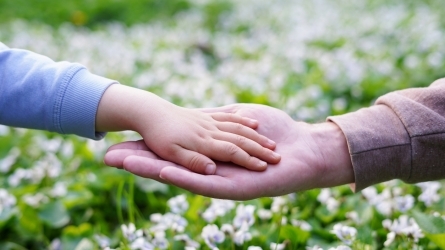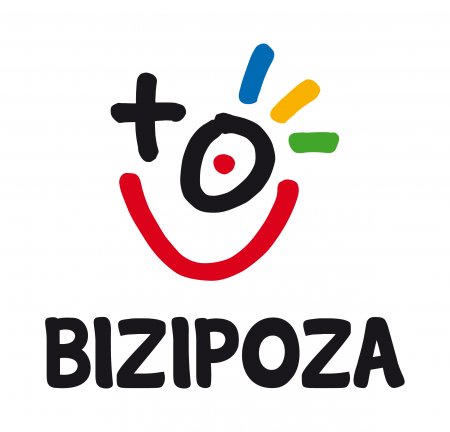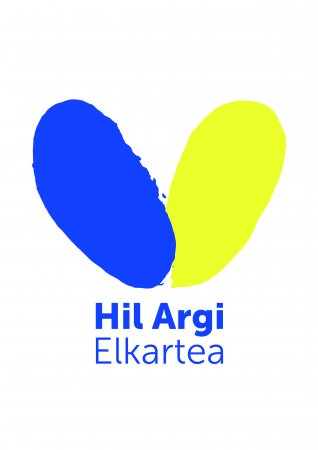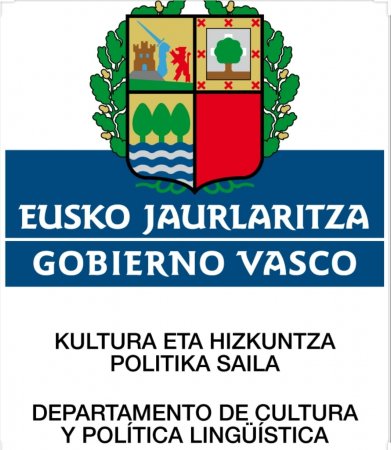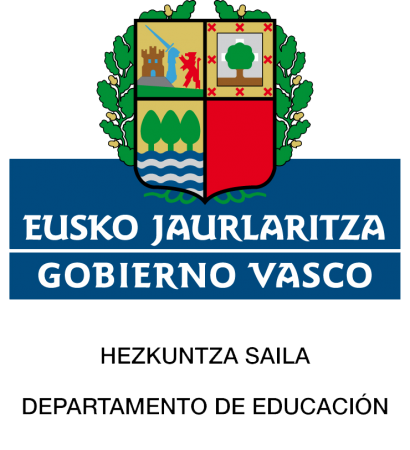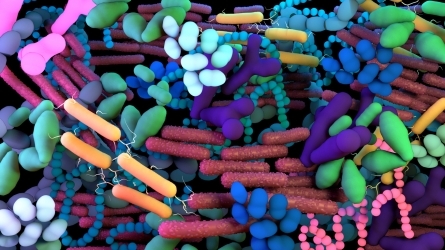Towards Quality Education: Pedagogy of Death
Description
We are all going to die. Without any exception. Children and young people will experience several deaths in their lives, until – hopefully when they are very old- they will experience their own death. And yet, in the education system, we act as if death does not exist.
In this course we will have the opportunity to enrich ourselves with the experiences and knowledge of experts from the educational community in Pedagogy of Death and grief. Together, we will create moments of exchange of ideas and learning.
- The Pedagogy of Death is an education for life. It helps children and young people to take life globally and to activate the resources that, by nature, they have to face death, so that they can live better the different deaths that life will bring them.
- In a normalizing task, when no death has occurred around, it takes advantage of the situations that occur on a daily basis as well as other resources to talk, think, and share emotions about death together.
- In educational support in grief, it helps to become aware of the emotions that arise in the face of any loss and to understand the natural process of grief. It considers essential the creation of a grieving roadmap or protocol at school.
Objectives
To make known the benefits that the Pedagogy of Death and Grief brings to the educational community.
To know first hand the experiences lived in the Basque Country.
To become aware of the resources that we have by nature to face death.
Activity directed to
- All public
- University student
- Teachers
Program
01-07-2024
Presentation by the Director of the activity
- Nere Erkiaga Laka | Hil Argi Elkartea
“Eskolen esperientzia: Antzuolako eskolan, heriotzaren pedagogian sakonduz“
- Josune Jimenez Villacastin | Antzuolako Herri Eskola - Irakaslea eta tutorea
- Elixabet Pueyo Zubiria | Antzuolako Herri Eskola - Irakaslea eta tutorea
“Gurasoen esperientzia: Seme-alabekin heriotzaz hitz egitearen garrantziaz“
- Manex Beristain Agirre | Iraskaslea
Break
“La pedagogía de la muerte: escuela para la vida“
- Elizabeth Ransanz Elisabet | Universidad Internacional de la Rioja - Coordinadora del Área de Teoría e Historia
“Muerte y proceso radical de cambio en la educación“
- Agustín De La Herrán Gascón | Universidad Autónoma de Madrid - Profesor titular de universidad
Break
Round table: “La pedagogía de la muerte en la escuela“
- Nere Erkiaga Laka | Hil Argi Elkartea (Moderator)
- Agustín De La Herrán Gascón | Universidad Autónoma de Madrid - Profesor titular de universidad
- Elizabeth Ransanz Elisabet | Universidad Internacional de la Rioja - Coordinadora del Área de Teoría e Historia
- Manex Beristain Agirre | Iraskaslea
- Josune Jimenez Villacastin | Antzuolako Herri Eskola - Irakaslea
- Elixabet Pueyo Zubiria | Antzuolako Herri Eskola - Irakaslea
02-07-2024
Presentation by the Director of the activity
- Nere Erkiaga Laka | Hil Argi Elkartea
“Eskolen esperientzia: Eskolan heriotza bizi izan dugunean, elkarrekin erantzunez“
- Itziar Otermin Figueroa | Aratz Ikastola - Irakaslea
- Maiteder Requejo Castro | Aratz Ikastola - Irakaslea
“Doluaren interbentzioa: Heriotza baten aurrean hezkuntza komunitateak egoki erantzuteko gakoak“
- Francisco javier (Patxi) Izaguirre Ormazábal | Psikologo klinikoa
Break
“Ikastetxeko dolurako bide-orria: humanitatez jarduteko ezinbesteko tresna“
- Txema Ormazabal Elola | Bidegin Elkartea - Pedagogoa
Round table: “Doluaren trataera eskolan“
- Nere Erkiaga Laka | Hil Argi Elkartea (Moderator)
- Txema Ormazabal Elola | Bidegin Elkartea - Pedagogoa
- Francisco javier (Patxi) Izaguirre Ormazábal | Psikologo klinikoa
- Itziar Otermin Figueroa | Aratz Ikastola - Irakaslea
- Maiteder Requejo Castro | Aratz Ikastola - Irakaslea
Closing session
- Nere Erkiaga Laka | Hil Argi Elkartea
Directors
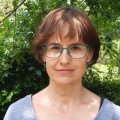
Nere Erkiaga Laka
Hil Argi Elkartea
Master in Death Studies at the University of La Laguna (2017), Master in Community Development and Participation at the University of the Basque Country (2007) and Postgraduate in Transmission of Basque Culture (2011) at Mondragon Unibertsitatea. She has experience in group dynamization and in death issues dissemination, and has launched the Hil Arte Bizi project for the empowerment of citizens and communities to face death. In 2018 she promoted the creation of the Hil Argi Elkartea association. This association offers, among other projects, “Gehiago Gara” initiative and “Bertso-ipuin bat zuretzat” for children who need palliative care. During the 2020-2021 academic year she collaborated in the Euskadi Irratia’s Faktoria radio program and created 41 chapters on topics related to death: https://hilargi.eus/irratian/
Speakers
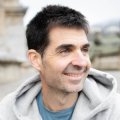
Manex Beristain Agirre
Graduate in Psychopedagogy from the University of the Basque Country. Diploma in Physical and Early Childhood Education. Four-year training in psychomotor skills. He offers Laughter Therapy workshops and experiential workshops on death and grief to people of different ages, through art. He is the father of two children and widower. Creator of the story "Azken galdera amari" in Basque and Spanish, he is currently presenting the story through singing and storytelling. More information: https://www.manexberistain.eus/
Agustín De La Herrán Gascón
Pedagogo, Licenciado en Filosofía y Ciencias de la Educación (Sección: Ciencias de la Educación) (UCM). Master en Psicología Escolar (UCM). Doctor en Educación (UCM). Es profesor titular del Departamento de Pedagogía de la Universidad Autónoma de Madrid. Director del grupo de Cuenta con 3 sexenios de investigación (CNEAI). Actualmente investiga en la crítica y alternativa radicales a la Pedagogía, la Didáctica General, la educación y la enseñanza desde el “enfoque radical e inclusivo de la educación”. Ha recibido una veintena de premios y reconocimientos por su trayectoria académica, docente e investigadora o por proyectos en los que ha trabajado. Más información: https://pedagogiadelamuerte.com/ https://radicaleinclusiva.com https://pedagogiafc.com/ https://pedagogiaprenatal.es/que-es-la-pedagogia-prenatal/

Nere Erkiaga Laka
Hil Argi Elkartea
Master in Death Studies at the University of La Laguna (2017), Master in Community Development and Participation at the University of the Basque Country (2007) and Postgraduate in Transmission of Basque Culture (2011) at Mondragon Unibertsitatea. She has experience in group dynamization and in death issues dissemination, and has launched the Hil Arte Bizi project for the empowerment of citizens and communities to face death. In 2018 she promoted the creation of the Hil Argi Elkartea association. This association offers, among other projects, “Gehiago Gara” initiative and “Bertso-ipuin bat zuretzat” for children who need palliative care. During the 2020-2021 academic year she collaborated in the Euskadi Irratia’s Faktoria radio program and created 41 chapters on topics related to death: https://hilargi.eus/irratian/

Francisco javier (Patxi) Izaguirre Ormazábal
Psychologist specializing in clinical psychology with private practice (clinical psychologist). Psychologist specialized in psychotherapy by the European Federation of Psychotherapy (EFPA). Professor at the University of the Basque Country teaching about the grieving process since the 2016/17 academic year in the Masters of General Health Psychology and, also, in the Master of Early Care. Psychologist at the Ekintza Ikastola from the 1998 academic year to the 2005 academic year. Trainer and advisor on the grieving process in different educational, health and social settings. Author of the book “Cómo superar el duelo: Hablar de la muerte nos acerca a la vida” Almuzara (2021). Supervisor of clinical cases, emergency interventions and professional self-care.

Josune Jimenez Villacastin
Teacher and tutor. She graduated in Teaching from the University of Mondragon. After being a teacher in different centres, she began working at the public school of Antzuola 12 years ago. She abandoned most of what she had learned until then and delved into the pedagogical model of the Antzuolako Herri Eskola. Another way of understanding education and the students, with another perspective. Trying to make the class become a magical world for the students every day.
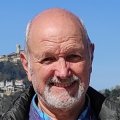
Txema Ormazabal Elola
Bidegin
Pedagogue. Specialized in intervention in loss, grief and trauma through the integrative-relational model at the IPIR Institute. He is specialized also in suicidelogy. Through the Bidegin association he collaborates in interventions on grief and loss in schools.

Itziar Otermin Figueroa
Teacher and educational psychologist. She has twenty years of experience tutoring students of different stages and ages in teaching. She is currently a teacher at the Ikastola Aratz and in recent years she has been a tutor for the second cycle of Primary.

Elixabet Pueyo Zubiria
Teacher and tutor. She studied teaching and psychopedagogy at the University of Mondragon. She has completed her professional career in different educational centres and in the last four years she has worked at the public school of Antzuola. There she has had the opportunity to learn about the pedagogy of death and implement it in her daily work.

Elizabeth Ransanz Elisabet
Doctor in Psychopedagogy and graduate in Pedagogy (UCM) and graduate in Psychology (UNIR). Master in Art Therapy and Artistic Education for Social Inclusion (UAM). She is a specialist in loss and grief in childhood and adolescence from the Mario Losantos Foundation. Since 2001, complementing her training with Art Therapy, she has been developing educational intervention programs on grief and loss. He has carried out numerous research projects, including that carried out at the Autonomous University of Madrid, R&D&I Research directed by Doctors Pablo Rodríguez and Agustín de la Herrán Gascón with the title “Innovación e inclusión de la muerte y la conciencia de finitud en el ámbito educativo formal”. She has published various articles, including, “La muerte en la construcción de la identidad personal. Intervenciones educativas” (2016), “Recursos educativos sobre la Pedagogía de la Muerte” (2021) or “Arteterapia y prevención del suicidio. Una revisión bibliográfica sobre las principales aportaciones de la Arteterapia en la prevención del suicidio en adolescentes” (2022).

Maiteder Requejo Castro
Teacher, educational psychologist and neuropsychologist. She has twenty years of teaching experience, specifically in the field of special education. She is currently a teacher at the Ikastola Aratz and in recent years she is consolidating the subject of Emotional Intelligence at the Ikastola.
Registration fees
| Face-to-face | Until 31-05-2024 | Until 01-07-2024 |
|---|---|---|
| 25,00 EUR | 50,00 EUR | |
| - | 71,00 EUR | |
| - | 61,00 EUR | |
| - | 50,00 EUR | |
| - | 61,00 EUR | |
| - | 61,00 EUR | |
| - | 61,00 EUR | |
| - | 61,00 EUR | |
| - | 61,00 EUR | |
| - | 61,00 EUR |
Venue
Miramar Palace
Pº de Miraconcha nº 48. Donostia / San Sebastián
Gipuzkoa
Miramar Palace
Pº de Miraconcha nº 48. Donostia / San Sebastián
Gipuzkoa
Sustainable development goals
Agenda 2030 is the new international development agenda approved in September 2015 by the United Nations. This agenda aims to be an instrument to favour sustainable human development all over the planet, and its main pillars are the eradication of poverty, a reduction in equality and vulnerability and fostering sustainability. It is a unique opportunity to transform the world up to 2030 and guarantee human rights for all.

3 - Good health and well-being
Guarantee a healthy life and foster the well-being of all people of all ages. Key issues: universal healthcare coverage, sexual and reproductive health, reduction in the number of road accident casualties, pollution and chemical products, reduction in maternal and neonatal mortality, the end of epidemics such as AIDS, combating hepatitis and other water-borne diseases, drug and alcohol prevention, control of tobacco.
More information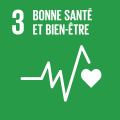
4 - Quality education
Guarantee quality education that is inclusive and equitable and foster opportunities for lifelong learning for everyone. Key issues: free-of-charge, equitable and quality education, access to higher education and training on an equal basis, education for sustainable development, suitable education centres for persons with disabilities, and safe, non-violent and efficient learning environments.
More information
